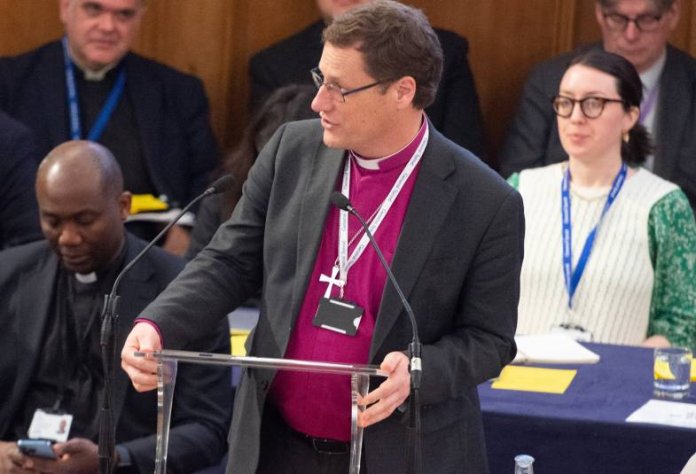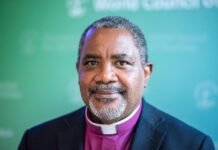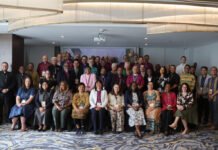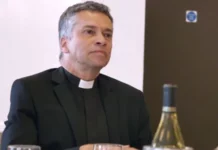Firm proposals for a settlement to enable the Church of England to move forward together amid deep differences on questions of sexuality and marriage will be developed over the next few months, General Synod has heard.
The Bishop of Leicester, Martyn Snow – the lead bishop for the ‘Living in Love and Faith’ process – told Synod there is vital work to do both to implement decisions already taken and to bring reconciliation within the Church of England itself.
Speaking during a wide-ranging debate on his proposal for a series of commitments which he said form the basis of a wider settlement, he spoke of a growing desire in parishes for the Church of England “to reach agreement and get on with serving our nation.”
The gathering of Synod, in London, is the first since the prayers of dedication, thanksgiving and seeking God’s blessing for same-sex couples (known as Prayers of Love and Faith) came into use during public worship in the Church of England.
Separate proposals for special standalone services for same-sex couples to be formally authorised under canon law are also under consideration alongside questions including clergy entering same-sex marriages and whether new structures may be needed to hold the Church together in a new context.
Opening the debate, Bishop Martyn spoke of his regret that further concrete proposals are not already in place but told Synod: “The work goes on – both the work of implementing the decisions already taken, and the work of reconciliation and finding a way forward that most, if not all, can agree.”
He said the idea of reconciliation has been central to Anglicanism since it emerged amid the turmoil of the Reformation.
“I would like to hope that we have learnt something from our history,” he said.
“If the world needs to see what reconciliation with God looks like, then the wider church also needs the particular gift of Anglicanism.”
He said reconciliation is a “missionary imperative” for the Church today despite deep disagreements about questions around sexuality and marriage.
“I know how passionately many people feel,” he said.
“But I dare to suggest that out in our parishes, our fresh expressions of church, our chaplaincies and schools, people just want us to reach agreement and get on with serving our nation.
“So my question is simple: will you join me in looking for that comprehensive vision which holds together both ends of the spectrum.”
The debate concluded without a vote on the main motion after Synod members agreed to a procedural motion to move to next business.
Speaking after the debate, Bishop Martyn said: “We’ve had an opportunity for an open, thoughtful – and gracious – debate about how we might move forward together as a church in the next stage of the implementing our decisions on Living in Love and Faith and the work of reconciliation amid our divisions.
“However, there is more work to be done to develop concrete proposals on really important questions we face and a number of people thought it would not be helpful to proceed to a vote without those concrete proposals. I can see the logic in that.
“I was struck by the generous and gracious tone of the debate and I’m grateful to Synod members. I believe my brothers and sisters on Synod would not have been here if they did not believe that some degree of communion is still possible. That gives me great hope and great reassurance that we will find a way through this.
“What I’m picking up very clearly though is a growing desire in parishes for the Church of England to reach agreement and get on with serving our nation.
“So that will be my priority in the next few months as we seek to develop concrete proposals before the next meeting of Synod this summer.”



